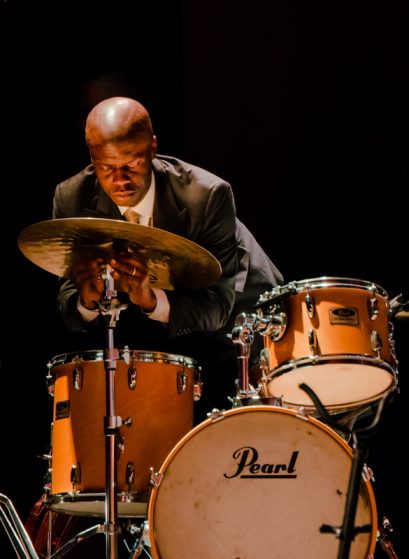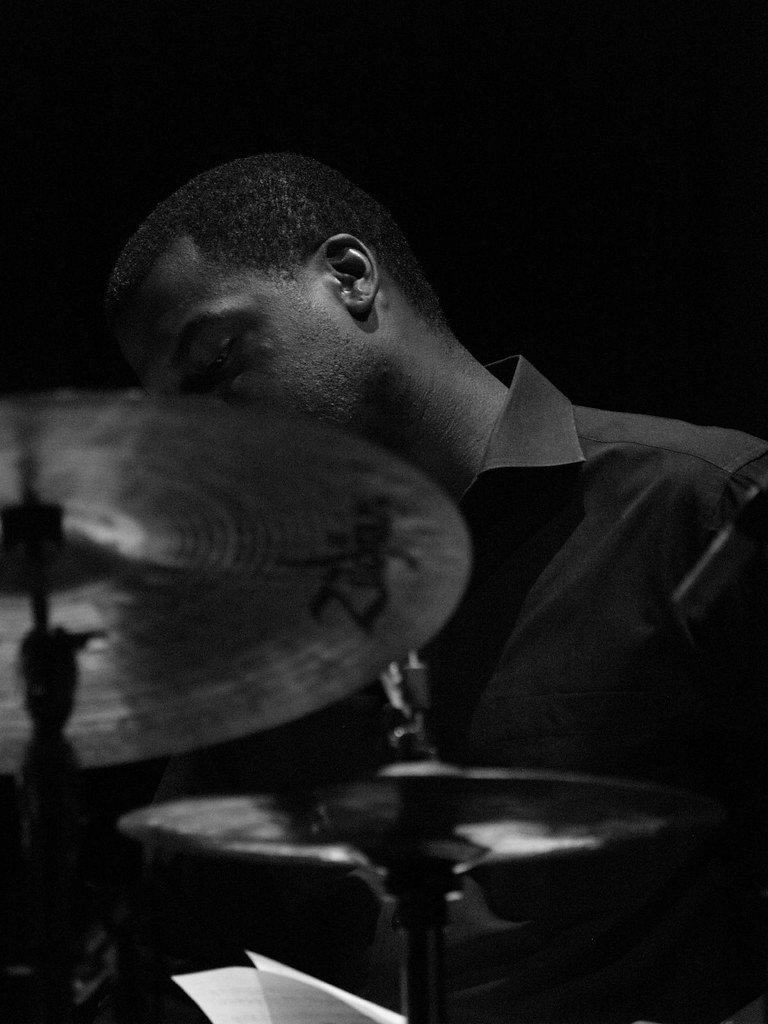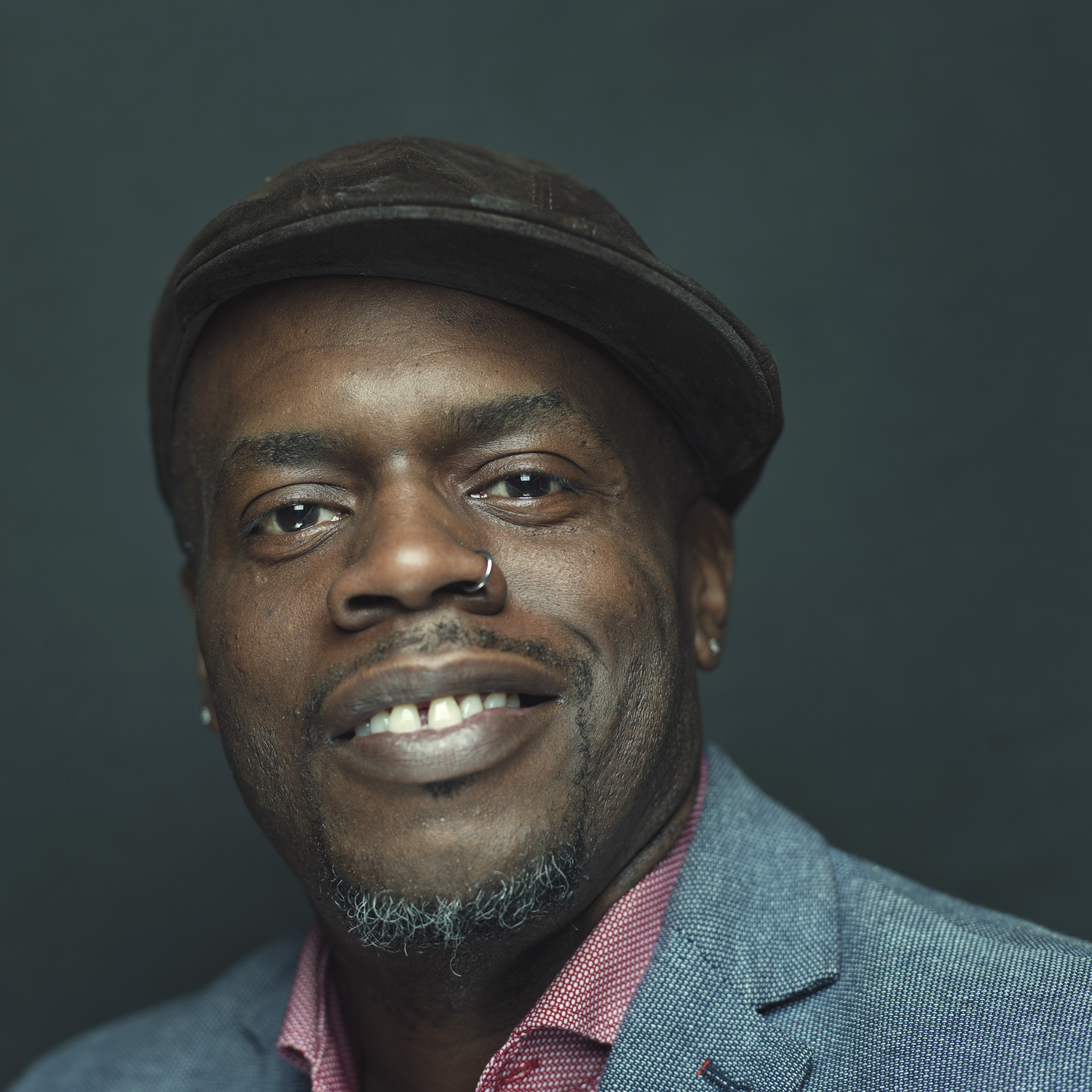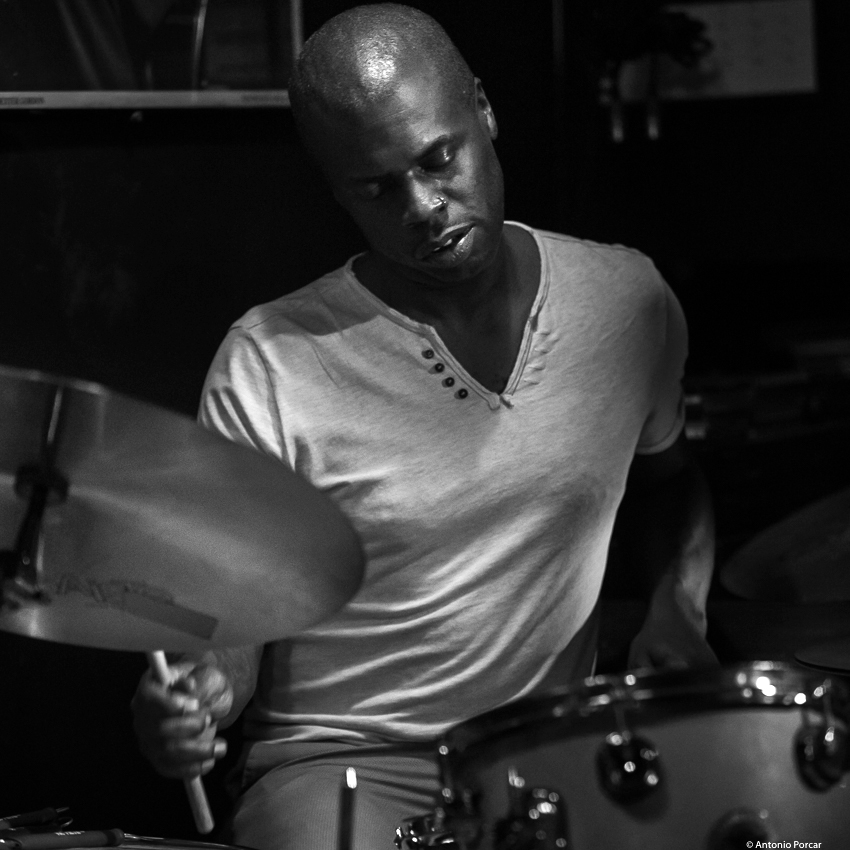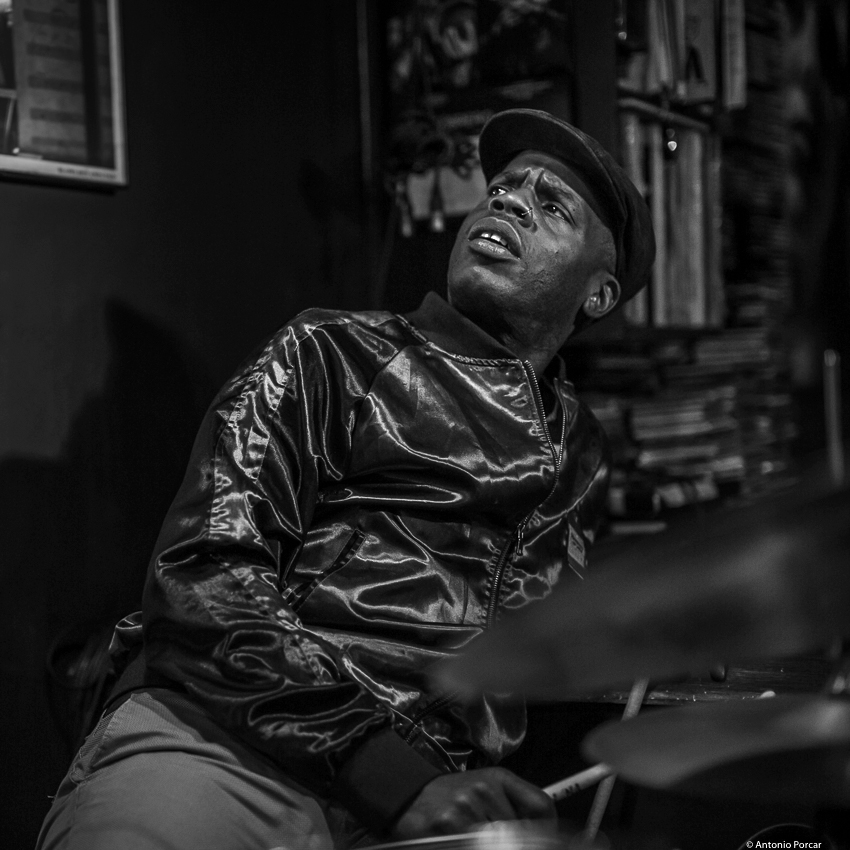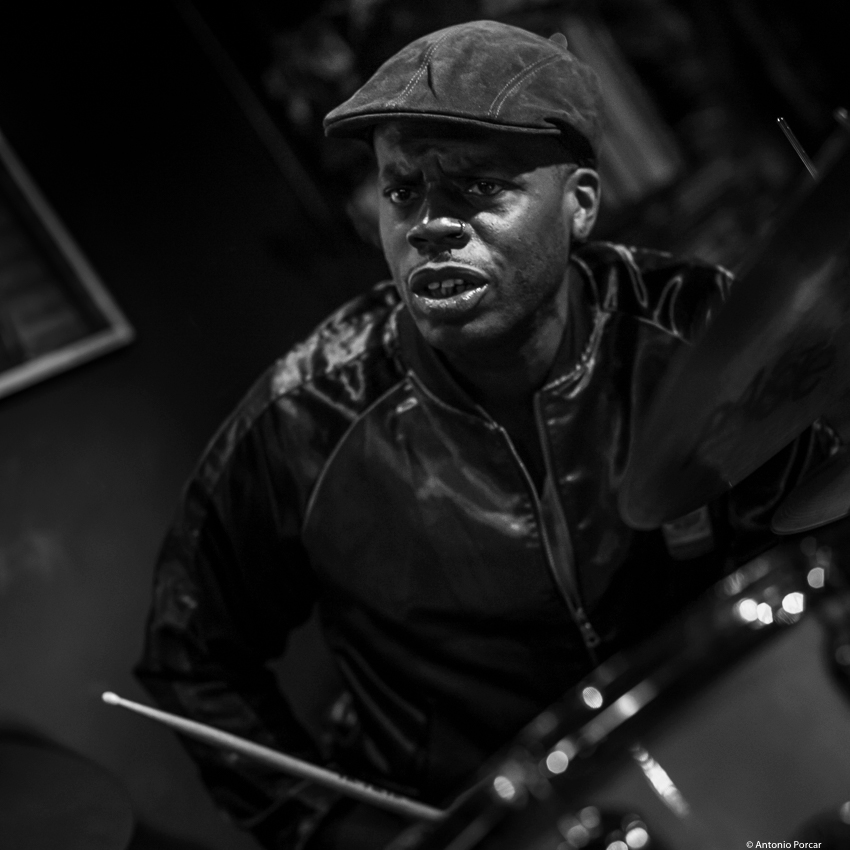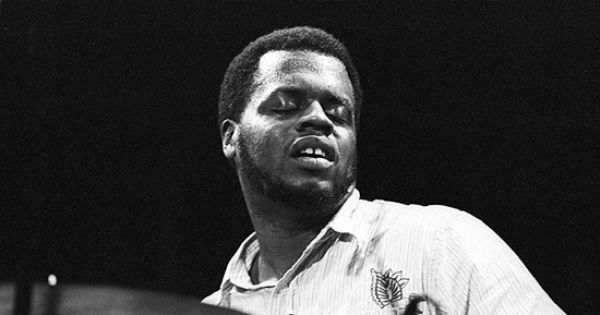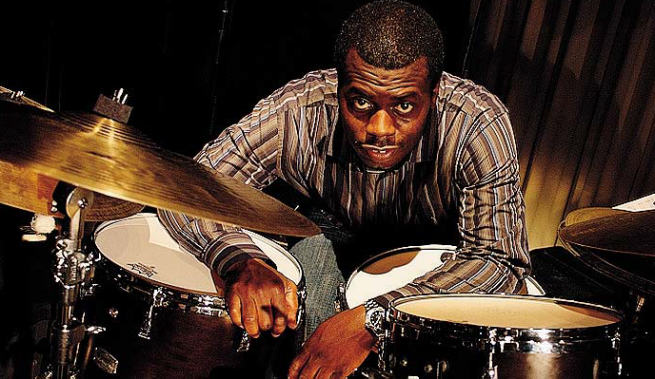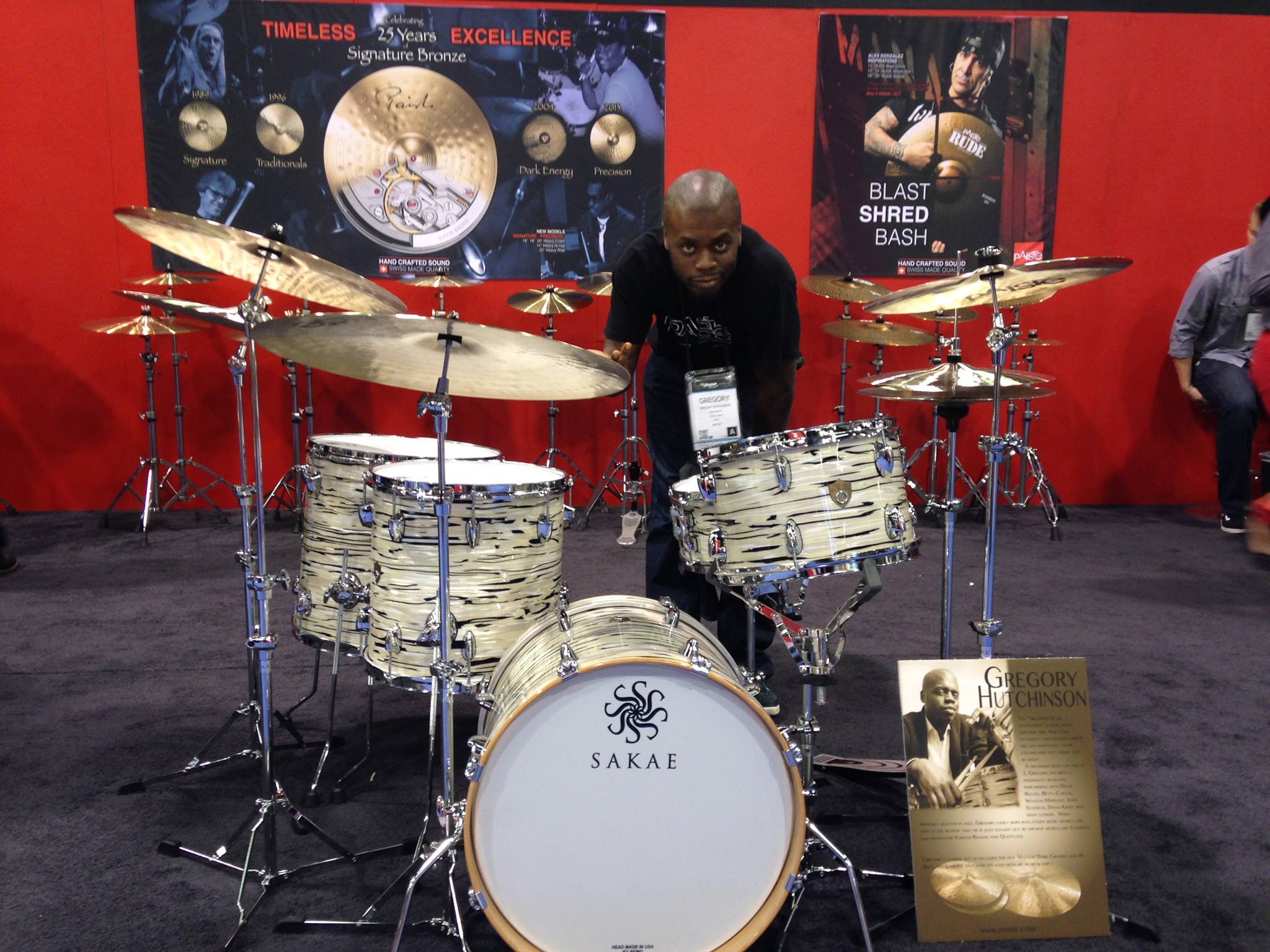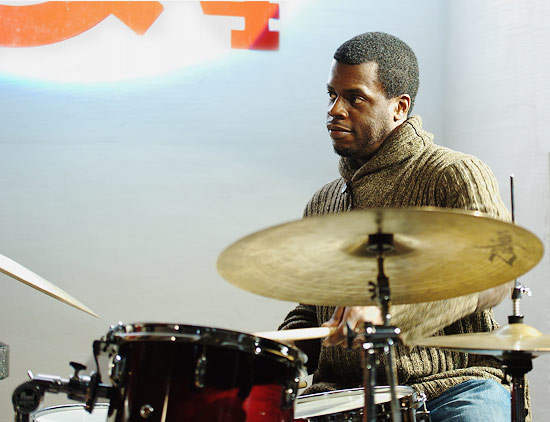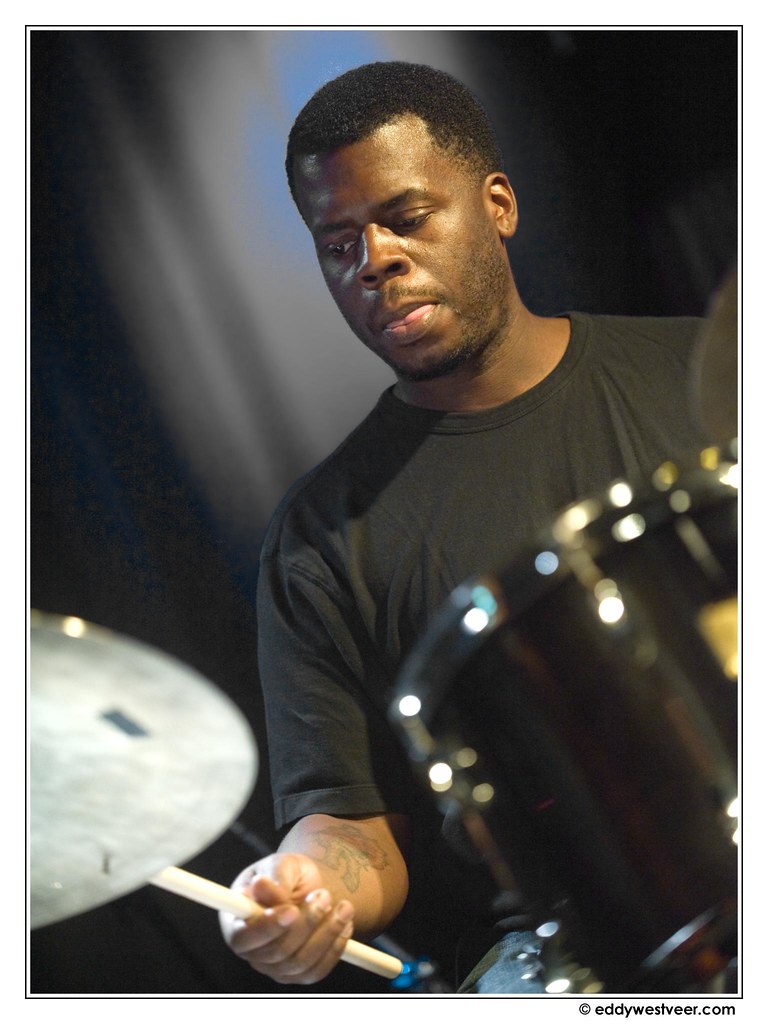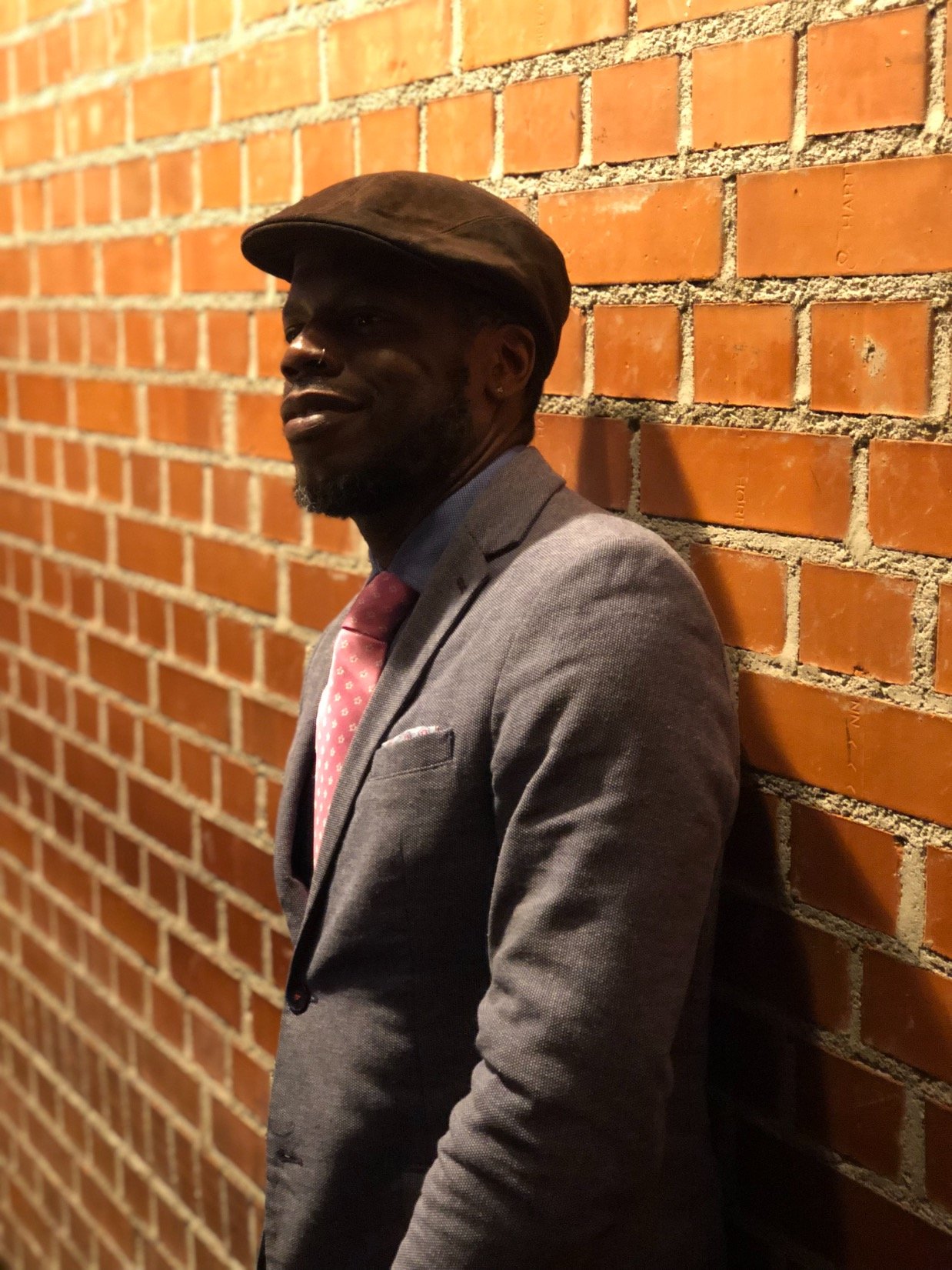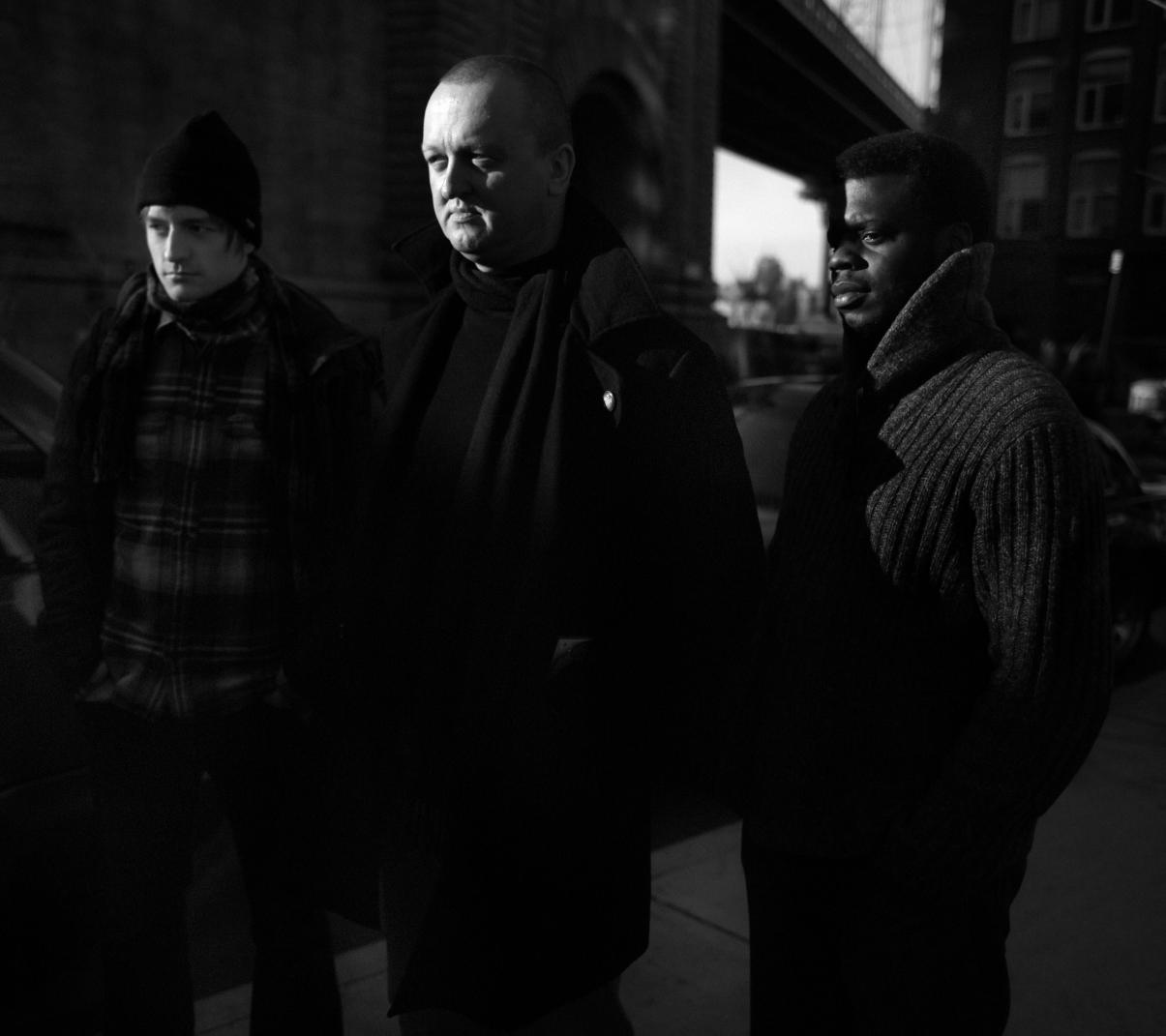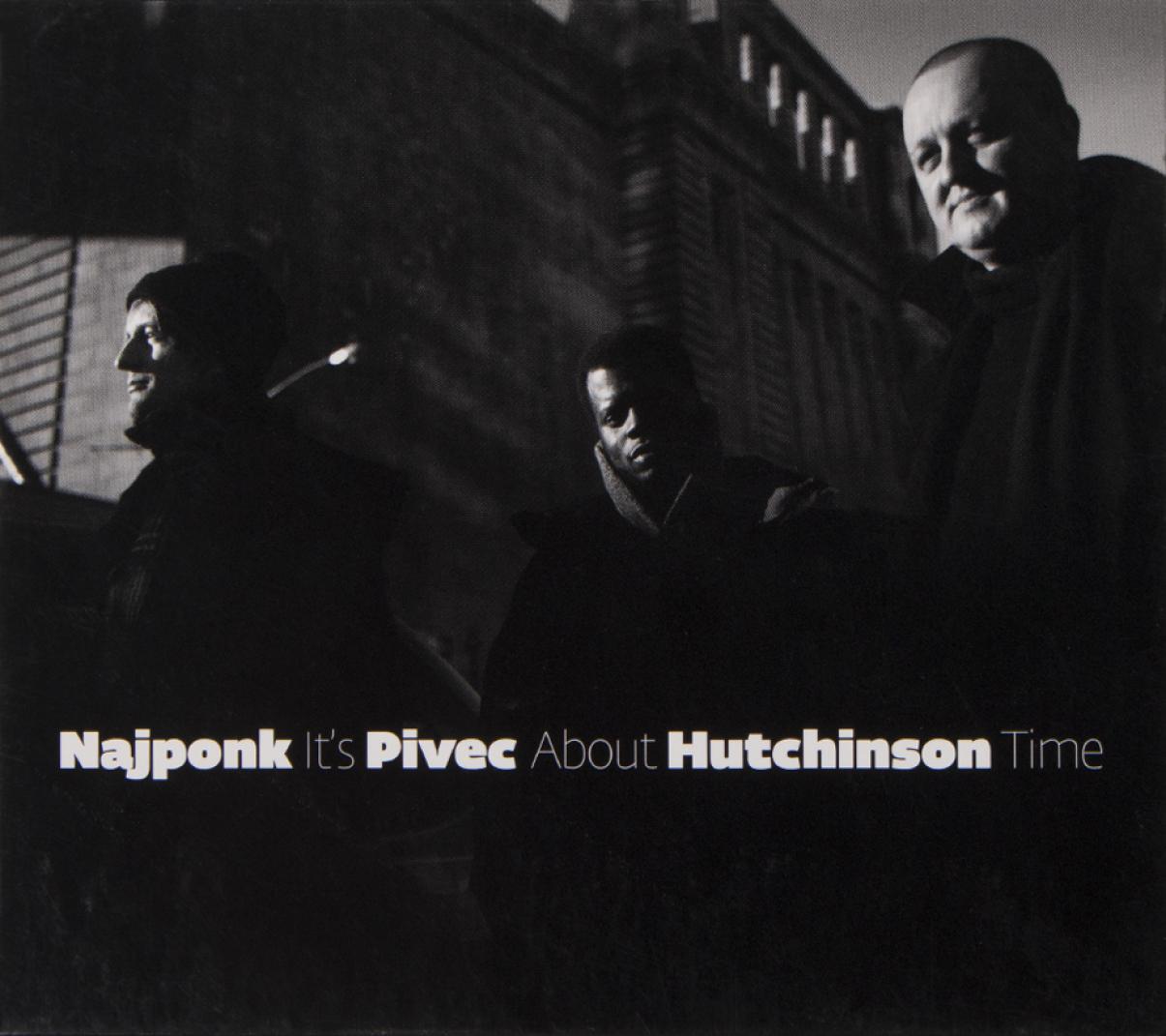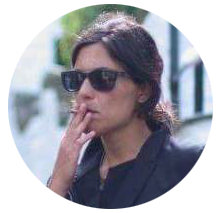In & Out Jazz interview with Gregory Hutchinson
05
FEBRERO, 2020
In & Out JAZZ interviews one of the best jazz drummers in the world, Gregory “Hutch” Hutchinson (born June 16, 1970, New York City). Greg Hutchinson is one of the most highly respected musicians of our time. He has appeared on over 160 recordings performing with countless jazz greats, including Betty Carter, Joshua Redman, Dianne Reeves, Wynton Marsalis, John Scofield, Roy Hargrove, Diana Krall, Harry Connick Jr…
TJF 2019 – Joshua Redman trio
In&OutJAZZ: How would you describe your sound in contrast with others?
Greg Hutchinson: My sound is both traditional and modern; it is steeped in the tradition of bebop drumming but at the same time things evolve. My sound is Jeff “Tain” Watts we call it Crispy Brown, so it is crisp. And you know it is changing, so what my sound is now could be different by the time we finish this interview, it represents the evolution of my life, it is an adventurous sound.
How would you define it?
My sound is big, precise, unpredictable – it comes from different places – it is warm, the drums and cymbals always sound good, and complementary to each other. The sound comes from the personality that you have, that’s why everybody’s drums always sound different; that’s a good thing.
Joshua Redman «Hide and Seek» @Jazz_in_Marciac 2009
Who are your influences?
That’s easy. I grew up in New York so all the influences I have are all the great musicians in New York. Talking about drummers, Art Blakey, Charlie Persip, Victor Lewis, Kenny Washington, Lewis Nash, Tain, Elvin Jones in New York, Jack DeJohnette, all the major drummers in New York I got to see, and they got to know me. During the time I grew up in New York, it was the time of hip hop music so that is an influence on me, so that is how my life and music has come about. Then my mum and dad: my dad played drums and my mum is a supporter of the music, always encouraging, so they were great influences to have.
What is your concept of jazz now?
My concept of jazz is that jazz is music. Traditional jazz is swing jazz with a swing beat. What we think of as traditional is a certain thing but jazz has other areas of music too that are jazz by definition, and include improvisation; that falls under jazz. It might not necessarily be bebop, it is different, but people come up with their own ideas so – I like it but I also think you need to know the tradition to go forward.
With which musicians are you most comfortable?
All musicians. I like all types of music, different styles, I like everything that is challenging, because in the end it is all music so you’ve got to be able to hear it and find a way to play it.
How would you describe the people who are playing right now?
It is different, younger people have a lot more technique when they learn, they have a lot more available to them to research, videos and everything, so they learn faster. But just because you learn faster doesn’t mean you learn better, so it is really important to take your time. But there are a lot of young people playing the music right now, which is great because that is how the music survives.
Who stands out for you?
Marcus Gilmore I love, Justin Tyson, there are a bunch of cats I can’t think of all of them right now but [looking at camera] Hutchs boys you all know what’s up! Francesco Ciniglio, my Italian buddy is super bad.
What is your opinion about traditional jazz?
It is great, that is how we learn. It is great to learn how the music started and to see where we have got to now. It’s very important, it is part of the history you have to understand it, I think, to do anything. It’s like learning to walk, you can’t run before you can walk so traditional jazz is awesome, you know.
How do you combine traditional and contemporary music?
I don’t think about how to combine them, I just play and think about what works for the music. You know, when you go shopping you know what you need to get, so it is just whatever the music needs. Just by living the life, things kind of come like one: what the new traditonal is and the new contemporary is keeps changing.
Can you tell us about your projects?
I still work with Joshua Redman. People call and I go, like Matthew Stevens, Joe Lovano, it is always random, but I have my own music that I am doing now, so I need to get on that and put that out, that’s very important. Dianne Reeves, I am about to play with so, you know, we are in the mix all the time, as we say.
How many records have you made?
Oh, I can’t tell you the number, I don’t know. Brian Blade and I did one, Ray Brown, Betty Carter, Dianne Reeves, Joe Henderson, Christian McBride – a lot, a lot of records.
What was it like to play with Joe Henderson?
Great. Incredible. A master, very cool dude. He picks and chooses the spots, he has a sound. Nice, nice.
Who have you most enjoyed playing with?
Wow, playing with Wayne Brown and Neil Jackson and Bob Cranshaw, playing with Stanley Turrentine and Marlena Shaw, playing with Stanley’s brother so many great moments, that is how I learned the music. Betty Carter, like I said, all these people who I have been playing with are incredible, you know. Every experience was awesome. Playing with Josh. Playing with Roy Hargrove was super special, they were all pretty awesome.
Who do you think of as your mentors?
My dad played drums, so he would have been first, then Wayne Barnes, who passed away, he was my drum teacher at the Brooklyn Conservatory of Music, and then Marvin “Smitty” Smith, a great drummer, and then Kenny Washington – but my mentor over all of those guys was Justin Deccicio and he was the teacher of all of those guys. I haven’t spoken to him in a long time.
Why was he important?
He was a great teacher and a great person. He taught Kenny Washington, Marcus Miller, all these great musicians. Fun guy, honest guy, no bullshit, straightforward.
What do you teach?
I teach the same things that people taught me. How to play the instrument the right way, how to get a sound, and how the instrument is an extension of yourself. You need to be comfortable with where you are at, just try to get better and not worry about what anyone else is doing. Do your own thing; if you can do that then everything is fine.
Do you find differences across cultures, between for example Europe and the US?
There are cultural differences. Shows always starts late, in places like Spain, so if it says it starts at 9 it starts at 9.45 or 10, but in the States, no. I prefer to be on time with the music. Other than that, no, the musicians are great here, in Europe, so I don’t see any difference.
Do you play more in Europe or the US?
I have a nice balance. It’s not too crazy.
Joshua Redman Reuben Rogers Gregory Hutchinson Jazz in Duketown 2017
Who would you most like to play with?
I have to think about this. Maybe Pat Metheny we played once but not really played, John Scofield…
Where would you like to play?
I like to play nice, big, venues, that’s all I can say.
What is your feeling about B.A.M and Nicholas Payton playing the trumpet?
I don’t talk about it, [BAM] he’s my friend, that is his choice, I have known Nicholas for a long time so…. I understand a lot.
What has been your experience with him?
Great. We played maybe 18 months ago and it was great, no problem.
If you had to speak about five living jazz musicians who would you choose?
There are so many. It is hard to choose five. There are old school and new people I like. Dianne Reeves, Josh, John Scofield – everyone who I’ve played with, I love.
Greg Hutchinson Drum Solo
29 Edición FESTIVAL JAZZ DONOSTIA JAZZALDIA 1994. Roy Hargrove Quintet – Betty Carter
Close Your Eyes – Roy Hargrove Quintet Live at Huis Ten Bosch Jazz Festival 1992 Nagasaki, Japan
Which do you consider to be your best recording?
I can’t answer that, someone else has to answer that. I have done classic records but I don’t know if they are necessarily my best. The Eric Reed records I like, It is Alright to Swing.
I like the Dianne Reeves records, Betty Carter, Joe Henderson, I like my new record – those are my best recordings – Joshua, Compass, the new one I like after listening to it, so those are my best records.
Do you think you are one of the best jazz drummers?
[Laughs] no, I think it is time to practise more! I don’t think about that. There is no best drummer; everyone does their best.
But why do some jazz drummers improve and others not?
I think it is about chances and making the best of your opportunities. You need some luck but you also have to practise. I came in at a good time for the music, so I was lucky, you know.
Escrito por Begoña Villalobos
05 de Febrero de 2020

